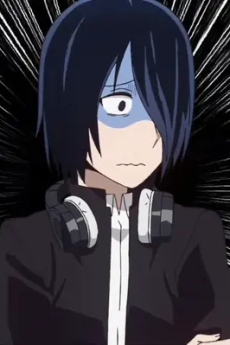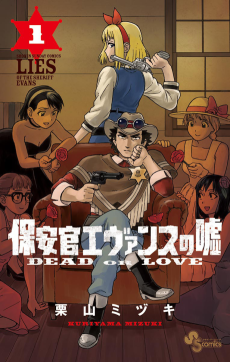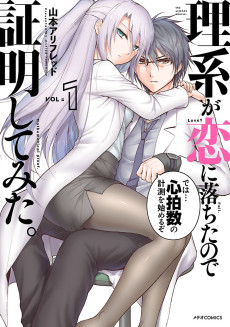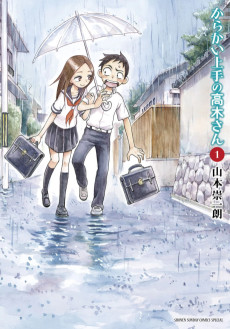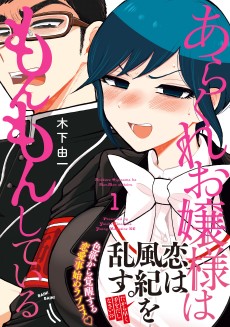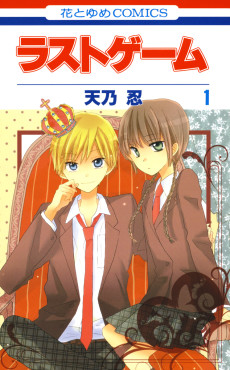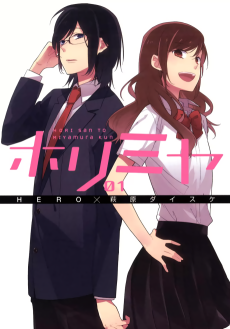KAGUYA-SAMA WA KOKURASETAI: TENSAITACHI NO RENAI ZUNOUSEN
STATUS
COMPLETE
VOLUMES
28
RELEASE
November 2, 2022
CHAPTERS
281
DESCRIPTION
As leaders of their prestigious academy’s student council, Kaguya and Miyuki are the elite of the elite! But it’s lonely at the top… Luckily for them, they’ve fallen in love! There’s just one problem—they both have too much pride to admit it. And so begins the daily scheming to get the object of their affection to confess their romantic feelings first… Love is a war you win by losing.
(Source: Viz Media)
Notes:
- The first 10 chapters were published in Monthly Miracle Jump. It switched to Weekly Young Jump starting with Ch. 11, with the chapter count being reset. This entry still includes the first 10 chapters from Miracle Jump.
- Winner of the 65th Shogakukan Manga Award for "Best General Manga" category in 2019.
CAST

Kaguya Shinomiya
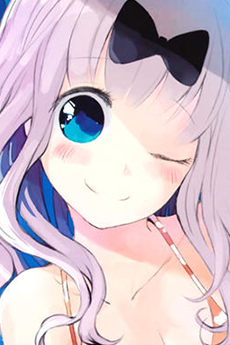
Chika Fujiwara
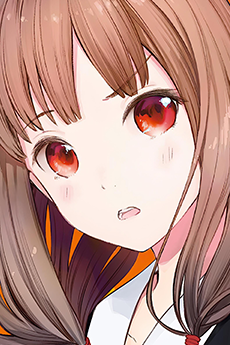
Miko Iino
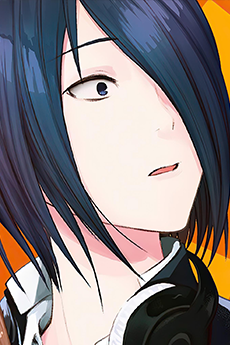
Yuu Ishigami
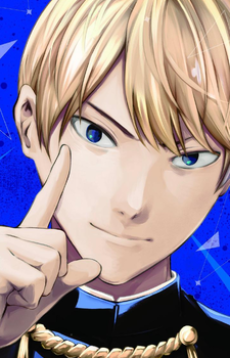
Miyuki Shirogane
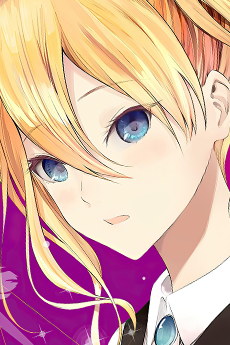
Ai Hayasaka
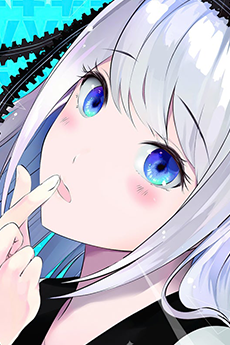
Kei Shirogane
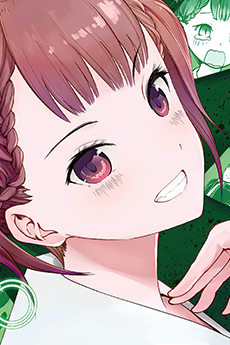
Maki Shijo
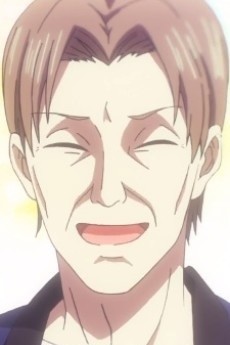
Shirogane no Chichi
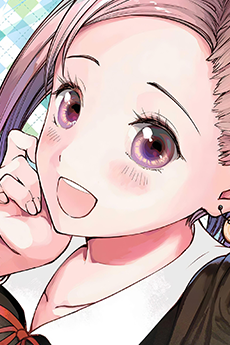
Tsubame Koyasu
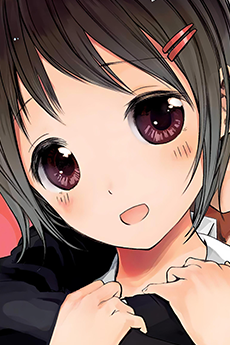
Nagisa Kashiwagi
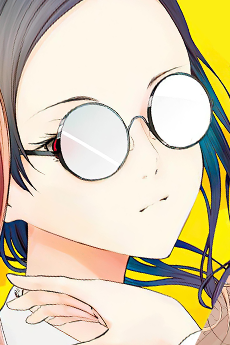
Kobachi Osaragi

Moeha Fujiwara
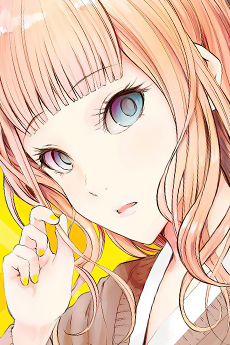
Rei Onodera
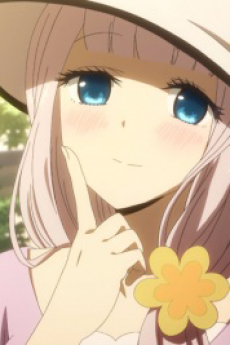
Toyomi Fujiwara
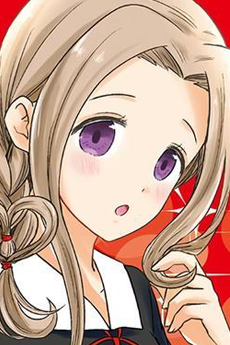
Karen Kino
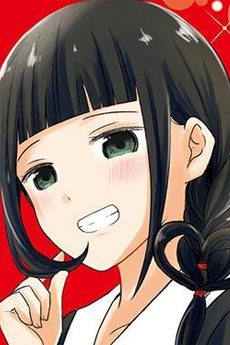
Erika Kose
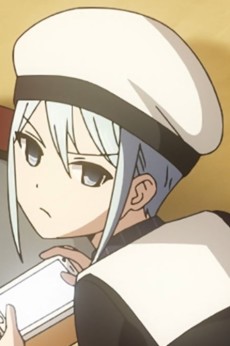
Momo Ryuuju
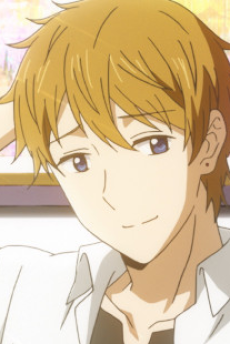
Tsubasa Tanuma
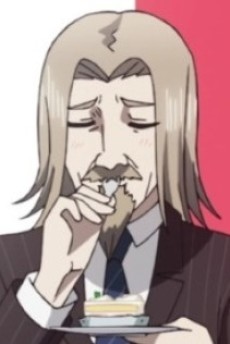
Adolphe Pescarolo
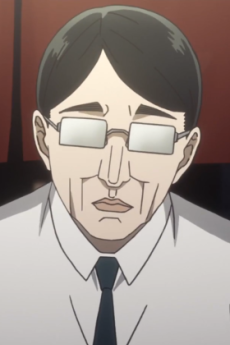
Saburo Odajima

Nao Hayasaka

Terashima

Kozue Makihara
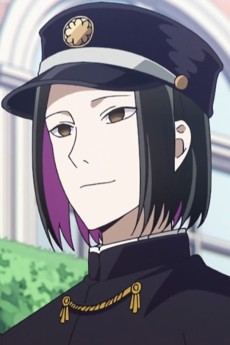
Zen Seito Kaichou
CHAPTERS
RELATED TO KAGUYA-SAMA WA KOKURASETAI: TENSAITACHI NO RENAI ZUNOUSEN
![[Oshi no Ko] Cover Art for [Oshi no Ko]](https://s4.anilist.co/file/anilistcdn/media/manga/cover/medium/bx117195-r3kf8eF0xkDJ.png) MANGA Drama[Oshi no Ko]
MANGA Drama[Oshi no Ko]REVIEWS

GGShang
95/100A funny romcom that evolves and changes alongside the charactersContinue on AniListKaguya-sama: Love is War is a great example of evolution in a story that feels natural without ever really forgetting its roots. It's also heavily based in character relationships which continuously develop throughout the story.
This manga is a slice of life romcom that starts off with the premise that whoever confesses first in a relationship is the weaker one in it, and will in turn be dominated. Now, step in the student counsel president Sirogane and vice-president Kaguya, who both have feelings for each other but are too prideful to confess, lest they be overtaken by the other one. But they both want to be with each other. So how do they work out this dilemma? By using underhanded tactics to try to get the other one to confess their love of course. I really love the way the story starts off since it is a new and refreshing take on a romcom. These characters are intelligent and they use that to create really elaborate schemes that are really fun to watch unfold. Unfortunately, this beginning premise is only around for the first few dozen chapters until it turns into more traditional romcom territory, adds new characters, explores character histories which take a very serious tone compared to the rest of the stories and eventually starts to wind its way back to the original plot lines revolving around deception. There is actually quite a lot of time exploring the lives of the side characters in the student counsel, which makes the cast seem a whole lot fuller than it initially does.
The characters in this manga and their interactions are what make it so interesting. Each one of them is unique with their own quirks and life philosophies, and the chemistry between any pair of them is really fun to see. It offers a look at multiple sides of each character as they interact with each other that makes them feel well rounded and real. Each one of them faces their own challenges at different times throughout the story and they all have their own goals and ambitions that sometimes clash and sometimes work out well together. Something big that you begin to notice as the story goes on is that the characters start to understand themselves a lot more as the chapters go by. They begin to be more honest with themselves, which in and of itself is a great contrast with the deceptive nature of the first few chapters. They begin to understand that they want things like love more than whatever crazy beliefs they have about it or any obstacles they might see in the way. They begin to look at their own problems and shortcomings in the face and work to solve them. And their honesty towards themselves is really sort of honored in a way by the characters around them who accept them for who they really are. It's really heartwarming to see everyone change and grow to become more mature characters.
It's really hard to talk about Kaguya-sama without mentioning the comedy aspect, since I'd say that it falls more heavily in the com then rom. It's hard to say exactly what type of comedy you should expect, but I'd say that a big portion of it is based around a sort of a difference in expectation with reality, where these rich and talented characters are actually really inept at a lot of basic things, some of it is based on irony, and there are a few more that I can't list off the top of my head. I'd say that there weren't many times I found myself laughing out loud, but a majority of the jokes it had did give a slight chuckle. I'd say that it's not meant for everyone, so you have to check it out for yourself. All that isn't to say that the romance parts of it weren't great though. I really liked a few of the chapters of significant romantic development since the characters get really awkward and cute about it.
Overall Kaguya-sama: Love is War is a funny, romance filled story with characters that can enjoy themselves while also growing in the process. When the story wants to be funny it's funny, when it wants to be serious it's serious and when it wants all cute and romantic it does so in spades. It's a story that grows and changes as you read it, and it won't disappoint.

ElicePhilips
100/100Genuine masterpiece. Evolves more than any story I know. Doesn't shy away from breaking perceptions. Truthful.Continue on AniListPlease read Kaguya-sama. This sentiment is one that my friends have heard tediously often, but it is heartfelt. I think this series is worth giving a chance to even if you aren't into romance or comedy, since it genuinely is one of the most earnestly subversive and impressive stories; one I definitely didn't expect when I learned about it as "Death Note if it was a romcom." For me, the evolution of Kaguya-sama across its 281 chapters surpasses any other story that I know.
So if you do happen to find yourself uninterested in the sketch-based storytelling at the start, keep in mind it will be a different story by the end. Not only impressive in the development of the main relationship, but other characters as well, or even in the references to psychology and other fields of life. It's difficult to describe as it's rather unique.
Well, this is the gist of the promotion for the series that I want to give without spoilers, which I suggest to avoid if you're confident about starting the series.BEWARE OF SPOILERS FROM HERE ON!
Having finished the first season, it seemed like I had grown really fond of the show, so I thought at least. But it turned out the impression it had left faded quickly and my reading of the manga got through only four chapters beyond the adaptation, leaving the series a mere landmark in memory.
Then the second season rolled around and immediately I was captured again. But I noticed that the story flowed differently. It had the same personality but it felt new.
Not only did the episodes share a common cast of characters and ideas, but the events of each episode explicitly influenced the following ones in a way that S1 only did for the climax. As the episodes unfolded, I saw the 67th student council disband, running in the election, winning, gaining a new member, Ishigami joining a school club, Kaguya almost addressing her feelings... Practically everyone was shown or explored from a new angle, while also introducing a sense of time, resulting in the show ceasing to be episodic, and what felt like getting closer to the "real version of it." When season two ended I had more than enough resolve to catch up with the manga for real.Well, I read the manga. But honestly, I didn't notice that I did because I was so lost in the waves of ups and downs that is the story post sports festival. I forgot it's also a comedy. I may have forgotten it's a story. The experience of seeing characters whom I care for so much tussle with the ongoing changes in their lives was so immersive and real that it eclipsed everything. I read it over two days but it was probably a majority of it that I was locked in front of my laptop. Didn't feel sick later though and had found a new story tied for my favourite.
"This story has been serious for quite some time now." - Akasaka Aka.
How can a story simultaneously live and breathe in the realm of comedy and in themes of self-doubt, self-loathing, regret, guilt, depression, maturing, affection, so seamlessly...? I don't know, it's a great question and as a writer I yearn for the keys to the kingdom. But I do have an idea.
The main concept, which this essay is about, is that Kaguya-sama as a story is very whole; intermingling all of its elements into a very cohesive experience, and has a very strong personality, which makes it avoid binding itself down to storytelling conventions, genre, or its own initial structure. These two characteristics show in all major aspects of the story, which I'll go through.
The comedy.
Instead of being the main charm or just an accompanying element, the comedy is rooted into both the plot and character development. In so doing, for example: Ishigami's misunderstanding of Tsubame's question leads to an arc of Ishigami working on himself and Tsubame pondering on the nature of relationships; Miyuki's obscure skill issues form a series of episodes which uncover his deepest insecurity; Hayasaka's blunt commentary is almost her job. It doesn't feel like the humour or punchlines are being crafted by the author as much as them being a natural outcome of the bunch being together. I don't think anyone goes off character for a joke either. And while not every gag or joke is consequential, the idea is that comedy is not insulated into a space where it carries no weight over the story as a whole.
The characters.
I think that the factor which is shared the most by great stories is that their characters feel like people. But they are nurtured differently by writers, so it's possible to spot characteristics in casts of characters and compare them.
In this case, I find them written in a very broad way. Taking the main character, Kaguya, has many sides to her. IceGuya, BakaGuya, Child Kaguya, Chibi Kaguya, and Kaguya. Right? That's the representation of it and I love how it creates the Ice Kaguya arc, but it's also applicable in a more casual way, chapter by chapter. She's a genius and an absolute baka, a fairly good-hearted person but spiteful with a quick fuse, reserved and repressed and unable to keep a straight face, and so on. Might be a goofy example, but the culmination of having seen her from so many sides is that when she says her dream to be ruling the world, it's so recognizably like her. A line like that is easily perceived as cringe or even out of place, but I appreciate the manga's willingness to take it seriously when a character says or does something conventionally weird. As a side-note, this manga brings up a lot of interesting or informative things which wouldn't be expected in a romcom.
Also, the story doesn't hold back on committing to characterization even if it can make them less likable on a personal level. Kaguya relapsing into IceGuya after the high of the confession and hurting Shirogane is what works from a character perspective, but it made her less likable and I think was kind of a daring storytelling decision.The relationships.
Which characters intersect with each other is not frozen in place, so as the story progresses, characters meet and new dynamics form. Miyuki and Hayasaka becoming friends and having such joint development, the trio of Miyuki, Ishigami, Maki becoming so prevalent, Osaragi and Kaguya having that conversation about Miko, etc are all things the reader has no reason to expect, but the story goes there. The amount of combinations with a developed dynamic is incredible. While the character relationship charts define them in very simplistic terms, that's definitely for humour.
The atmosphere.
I've seen the short-lasting alterations in atmosphere be a complaint for some: the School Trip and the War arc as the main recipients. In my mind, this comes down to the series not being a stickler for genre as opposed to a flaw, and the fact that they're in place in the story as Shinomiya family is established a looming presence from the outset.
Another facet of the atmosphere is the flow of time. Quite a bit of the story happens off-screen: a six month time-skip in the first chapter, Ishigami falling for Tsubame, a lot of the lead-up in the war arc, etc - coming down to even a small scale between chapters, which creates the understanding that beyond what's shown to the reader, stuff is still happening in the Kaguya-sama world. The existence of Akaverse with Oshi no Ko and Renai Daikou especially reinforces it, too.
Personally, I feel like the years in the story are equally stuffed as they are in the real world.Conclusion.
In writing, there aren't any absolute truths or rules, because they're like guidelines. Essentially any concept is conceivably used well in the right context. One of these bits of common sense about writing is to be aware of the genre of story that you're writing as it can serve as the frame to keep ambitions in check.
Kaguya ostensibly does know its genre, referring to itself as one. But in having meta comics about the "Love is War" part of the story being dead, it signals the flexibility it has in defining itself. It's not a revolutionary series, but it's unruly in how it does stuff.
In terms of practicality, every story has a boundary which it won't cross because of prudence, knowing it would dilute the central story or overcomplicate it. If you think of something likely to be outside of a story's boundary, it usually feels obvious that what you're thinking of is unimaginable in the specific story. For example, some of the fucked up things in Berserk are fortunately completely off-limits in Kaguya-sama. It's not a shortcoming to set a boundary for a story, it's simply practical. If a third impact for stories eroded all barriers between every story ever written, I can't imagine what the watch order for the series soup would look like.
But in terms of Kaguya, the first limit for it is Aka's individual scope for imagination, rather than its genre, I think, and considering Aka appears to be a very well read and thoughtful person, it's more than enough.
The biggest example is the very premise of the series, initially the core focus which can't possibly be resolved before the ending as there would be no story left, being resolved before the ending, around half way through the manga. I'm glad it didn't end with the confession because it got to explore its characters and themes and the main relationship much deeper. Had this series ended with the confession, it would still be a fantastic romance story, but I don't think it'd have such a strong identity or world.
I do have issues with the story, too, like Aka post chapter 235 leaving things unfinished and rushing the War arc, both in how the arc unfolds and the emotional responses of the StuCo. Yet it's not badly written at any point, nor close to toppling the series, for me.Kaguya-sama has made me reflect on things in a way other stories haven't and I think it did impact me as a person significantly. A stretch of 2020-2022 is in part summarized by obsession with the series for me. I know other people for whom it is the same, but a very different experience. There's a split in readers whether they read Kaguya or Miyuki as the main main character, for example. And a lot of the people with an equally powerful attachment to the series would shake their head at my alluding to the School Trip arc being part of peak.
I hope this essay touches a shared point in what makes the story what it is for its fans
in truth, I'd love this essay to go into diegetic analysis of the characters and story as well, but I don't know how even to approach that without leaving it half-baked. So mayhaps this meta analysis makes for a good boundary for this.In the first version of this essay this line said "Kaguya-sama is simply whole." Not wrong, but I miss the enthusiasm with which I wrote it.
Also, Hayasaka best girl.
Mason
100/100A great read that everyone should give a chance at least once.Continue on AniListMy first ever review ( I know it's pretty weak ! )please go on my profile and let me know what I should do better next time, and don't sugarcoat it as I want to improve. I'm here to learn and better myself!
Some Spoilers ahead!
When I first started reading this manga, my first mistake was thinking it would be the same as every other romance and comedy out there. After reading over 200 chapters, I can tell you this is not the case! This is the most unique one I've seen and read ever.
The story starts off with the student council president, Shirone, and the vice president, Kaguya, in love with each other, but due to their pride, they refuse to confess to each other. What I saw as a stupid reason just to keep the story going overtime became why I loved this series so much and the most interesting aspect of the story. The reason why Shirogane refuses to confess to Kaguya first is that if he does so, he will feel inferior, not ever standing at the same level Kaguya will be at. This I thought was genius, it's not like other romances I've seen where they don't want to confess because it'll be embarrassing, it actually has a reason great reason behind it. Shirogane is always putting up a shield only showing his good sides because if he doesn't he thinks he will be inferior. Kaguya on the other hand wants to see all of him, but Shirogane will not allow it.
My favorite part of reading this manga was definitely the characters. Characters who I thought had no depth, were the ones who had the most. What was really enjoyable was that every single character has their time to shine in the spotlight, which I thought was really smart as in most romcoms, it focuses mainly on the main character and their lover, and the fact they did this really caught me off guard. An example of this is Hayasaka, a character whom I thought was insignificant and only there to push Kaguya to talk to Shirogane, turned out to be the most enjoyable, relatable at times, and well-written character I've ever seen. This may be due to me not watching anime and reading manga that much, but I really think her character development is something of a whole different breed and I really loved that.
Personally, I would recommend watching both seasons of the anime and reading the manga from chapter 1. I think there are many benefits for this as you can see the gags that they cut out from the anime, and you can give the characters voices when reading instead of your own, which definitely enhances the experience.
I really love this manga, it is the only manga that almost all the characters in it, I love, and the ones I don't like. There is NO character that I hate!
SIMILAR MANGAS YOU MAY LIKE
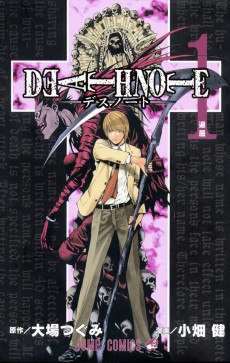 MANGA DramaDEATH NOTE
MANGA DramaDEATH NOTE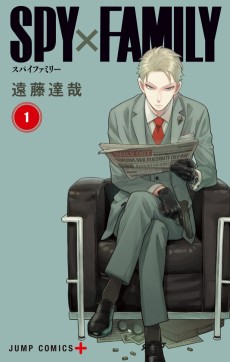 MANGA ActionSPY×FAMILY
MANGA ActionSPY×FAMILY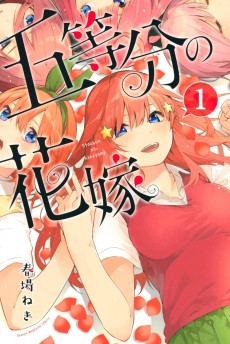 MANGA ComedyGo-toubun no Hanayome
MANGA ComedyGo-toubun no Hanayome
SCORE
- (4.4/5)
TRAILER
MORE INFO
Ended inNovember 2, 2022
Trending Level 4
Favorited by 12,593 Users


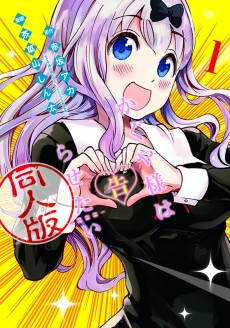


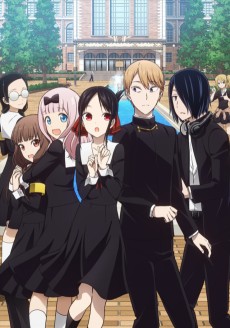

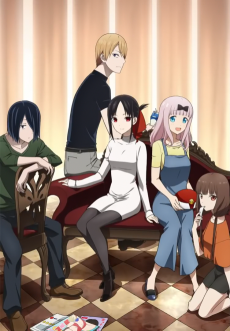

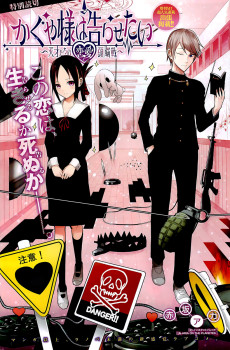
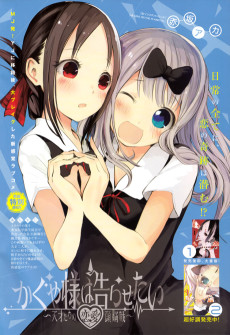

![[Oshi no Ko]: Tokubetsu-hen Cover Art for [Oshi no Ko]: Tokubetsu-hen](https://s4.anilist.co/file/anilistcdn/media/manga/cover/medium/bx153520-huZMDWEvujB6.jpg)
